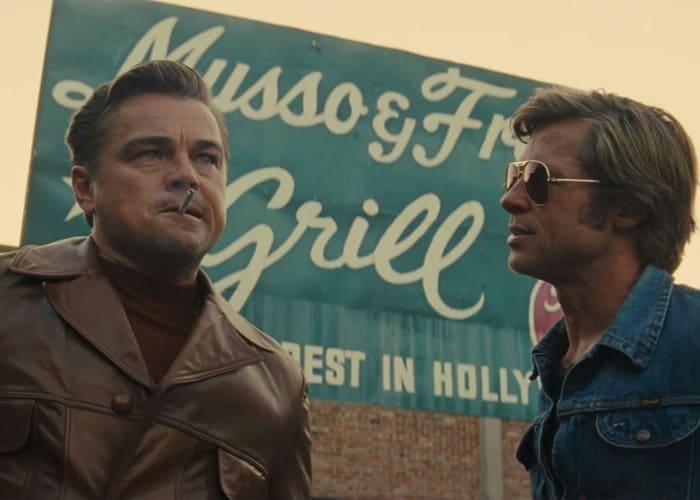
The Cannes Awards are a short, understated event. There’s nothing wrong with that at all. God knows we’re not craving another four-hour self-appraisal ceremony to power through. But, when all is said and done, only the most straightforward categories are awarded: Best Actress, Best Actor, Best Screenplay, Best Director, Grand Prix (Grand Jury Prize), and the Palme d’Or. There are usually some added jury prizes and special mentions, as well. This year, there was one special mention and two extra jury prizes. But let’s be honest, outside of the fervor for the Palme d’Or winner, the whole things feels as tame as a house dog in its final years. We decided to spice things up.
First of all, we expanded the playing field to all films that screened in competition and out of competition, along with films from Critics’ Week, Un Certain Regard, and Director’s Fortnight. Based on trends in the competing films, we devised 11 categories that deserve a winner. The awards are specific to this year, so next year there will be an entirely different batch. Honorable mention award categories that got jettisoned include: Shittiest Tween, Best Willem Dafoe Performance (yes, there were multiple), Most Annoying Pet, Least Talented Whistler, Least Tarantino-esque Movie (which would’ve gone to Tarantino), Most Obnoxious Death in the Arms of a Loved One (debatably tasteless), and the Bong d’Or (for lack of contenders).
Without further ado, this year’s Cannes superlatives…
Best Underwater Cinematography
Strangely enough, underwater cinematography was a major trend throughout the festival. At least a third of the competition films included underwater shots — not to mention several films outside of competition. Maybe it’s just coincidence? Or perhaps it’s a reflection of the quality and accessibility of modern film equipment? Either way, it was beautifully executed in most cases.
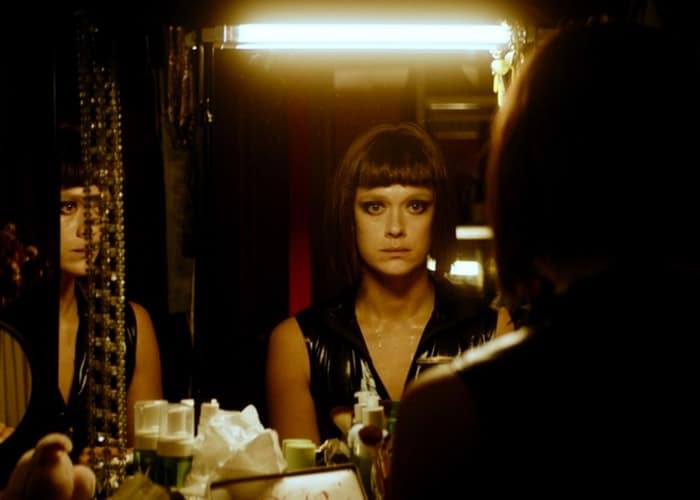
Winner: Dogs Don’t Wear Pants
If you’re like me, you don’t go to Finnish BDSM trauma therapy films for the subaquatic photography. That niche pursuit is reserved for nature documentaries like Planet Earth and Blue Planet. However, director Jukka-Pekka Valkeapää works wonders with the imaginative, ethereal, turquoise underwater shots, which flood in every time our main character reaches nirvana through being strangled by his dominatrix. It’s bizarre and brilliant.
Honorable Mention: Pain and Glory
Best Movie Within a Movie
From Nina Wu to Once Upon a Time in Hollywood to Pain and Glory to Matthias and Maxime, Cannes was chockablock with films within films. Thankfully, we get to see clips from almost all of them. Some are gut-wrenching, others revelatory, and others used strictly for comedic purposes, like our winner.
Winner: Operazione Dyn-o-mite! from Once Upon a Time… in Hollywood
The non-Rick Dalton (Leonardo DiCaprio) footage from Operazione is apparently from Sergio Corbucci’s 1967 film Moving Target, which makes plenty of sense given Quentin Tarantino’s obsession with Corbucci and the film’s other direct references to him. But it wins out of sheer goofiness. Just look at Leo brandishing that Italian flat cap hat and cheeky grin as his car hurdles vertically into the air.
Honorable Mention: Untitled Experimental Short from Matthias & Maxime
Best Acting Duo
This is easily the most difficult category to award. Acting duos were powerful, plentiful, and pristinely cast this year. There are nine that deserve significant recognition, making it the only category that truly deserves a slew of winners and honorable mentions. Of the winners, both are so terrific that the “best” is just a matter of what kind of mood you’re in, seeing as the period pieces are nothing alike.
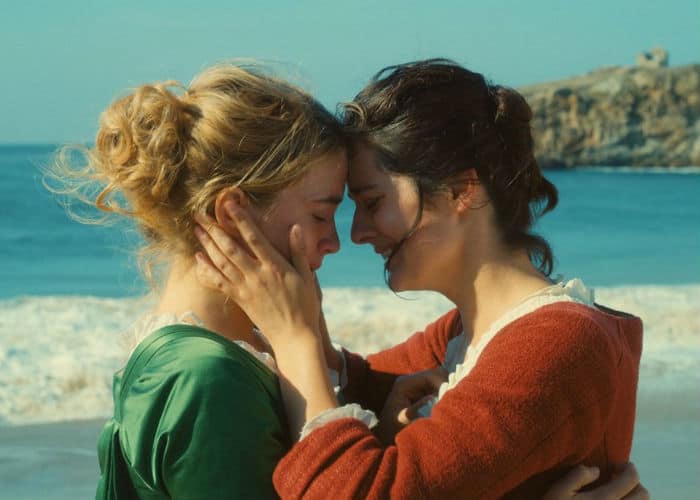
Winners: Noémie Merlant & Adèle Haenel (Portrait of a Lady on Fire), Willem Dafoe & Robert Pattinson (The Lighthouse)
It feels impossible to choose between these two duos, but it’s worth noting that they stuck like a sore thumb in their onscreen chemistry and individual performances. Merlant and Haenel have found a mutual spark so remarkable we will likely be discussing it for decades, if not millennia, to come. Just wait until you lay eyes on their lavish and tender scenes together. And Pattinson and Dafoe are given some of the most difficult performances of each of their careers by writer-director Robert Eggers. Needless to say, they rise to the challenge with bottomless energy that will truly blow your mind.
Honorable Mentions: Brad Pitt & Leonardo DiCaprio (Once Upon a Time…in Hollywood), August Diehl & Valerie Pachner (A Hidden Life), Xavier Dolan & Gabriel D’Almeida Freitas (Matthias & Maxime), Béatrice Dalle & Charlotte Gainsbourg (Lux Æterna)
Most Worth the Wait
There are 4,500 press members with varying levels of hierarchical accreditation at Cannes. So queueing is a major part of the process. This award takes into account the correlation between time waited and quality of the film. To put it into perspective, an hour and a half or more was spent in nearly every line for a competition film. The least I waited in one line was 10 minutes, and the most I waited in one line was a little over three hours.
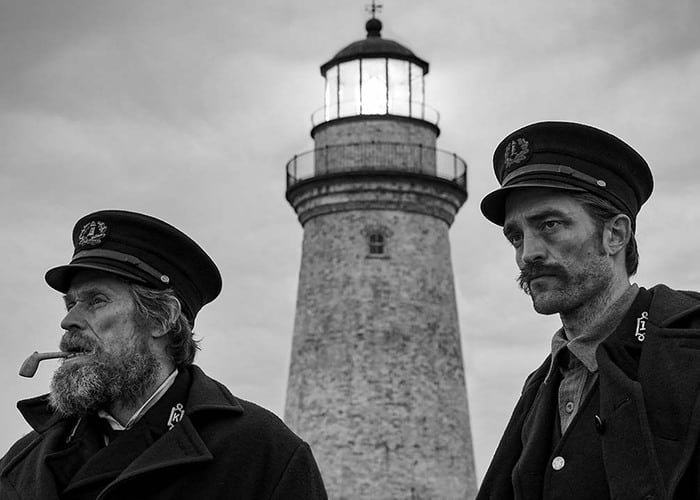
Winner: The Lighthouse
I queued for a total of six and a half hours over three different screenings before I got into The Lighthouse. It was more anticipated and attended than any film in competition, Tarantino’s included. By the time I got in, everyone inside was so electric with excitement, I couldn’t help but tremble with exhilaration. The audience roared for several minutes before the film started. And by god, does The Lighthouse deliver. It’s only a matter of time before the rest of the world explodes with enthusiasm for this modern masterstroke.
Honorable Mention: Once Upon a Time… in Hollywood
This was the film I waited a little over three hours for. Within about 45 minutes of the film starting, they began letting people in. Shoving, yelling, and other such wildly unprofessional behavior ensued. Lucky for me, I was one of the last few given entry and ended up with an awful view as a result. Inside, before the movie started, many adult critics posing as children cursed at each other over seats and threatened industry non-threats like, “I literally won’t read another one of your reviews ever again.” But no matter how hostile the crowd or poor my view, the experience was so charming, it would have taken physical battery to rattle me out of that ’60s LA trance.
Worst Showing by a Veteran Auteur
The official selection gravitates toward staple masters of the medium like Ken Loach, Terrence Malick, Pedro Almodóvar, Bong Joon-ho, Xavier Dolan, the Dardenne brothers, Abel Ferrara, etc., but being invited is not a glowing stamp of approval. There are always duds amongst the masters.
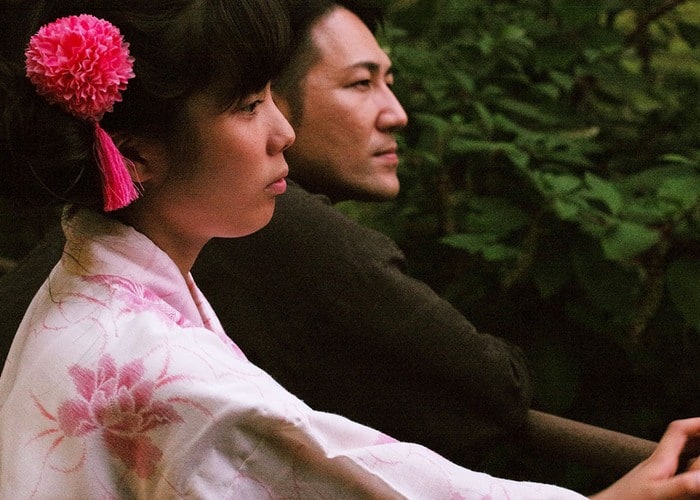
Winner (by a mile): Family Romance, LLC
I love Werner Herzog. He’s recognized as one of the greats for a reason. But the years haven’t treated his filmic vision well. He’s made some terrific documentaries and some very subpar fiction narrative as of late, but with Family Romance, he decided to blend the two. The result is abhorrent. We follow the owner of a “family rental” business who is, in real life, the owner of said business. In the film, he’s rented out by a mother to pose as a girl’s father who ran away long ago. I cringed from start to finish watching the owner (Ishii Yuichi) try to act. The film is more like an ugly, long YouTube video that a friend corners you into watching. It’s a grueling experience.
Most Impressive Display of Diplomacy
The lion’s share of the dialogue this year detailed the pursuit of some yet unachieved purpose, whether it meant trying to convince someone to let them atop a lighthouse, pleading to be strangled, hashing out family conflict, revisiting old drama with a friend, approaching new drama with a friend, debating a murder, convincing a superior to overlook some illegal activity, trying to land a friend a stunt gig, or something else. The various means were abundant and the results all over the place.
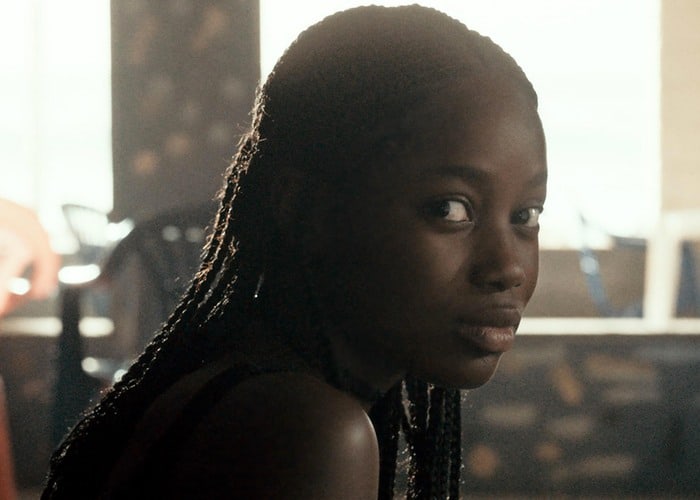
Winner: Atlantics
It’s too spoilery to explain how the women of Mati Diop’s first feature achieve the most impressive display of diplomacy of any characters in any film of the festival. But I will give some enticing details. First, the girls are relatively poor. Second, their opponent is very wealthy and powerful. Third, they get what they want from the man with hardly any trouble. Fourth, what they want is a shit ton of money. Given the long human history of people in power fucking over the powerless, it can rightly be assumed that something of a nearly supernatural order works its way into their diplomatic tactics with tremendous effect.
Honorable Mention: Joan of Arc
Never has a tween so fiercely and fervently verbally harassed a gaggle of clergy folk whose wits outrank hers tenfold. But Joan of Arc is no typical tween. While her attempt to defend her faith-based ethic obviously falls short, she deserves immense credit for her fearless tenacity in the face of death.
Least Impressive Display of Diplomacy
For as many displays of diplomacy that Cannes harbored, a worst is warranted. This doesn’t mean the display was poorly directed or the actors did a bad job filling out the role but that their characters royally blew it in their attempts to negotiate and consequently got the opposite of what they wanted.
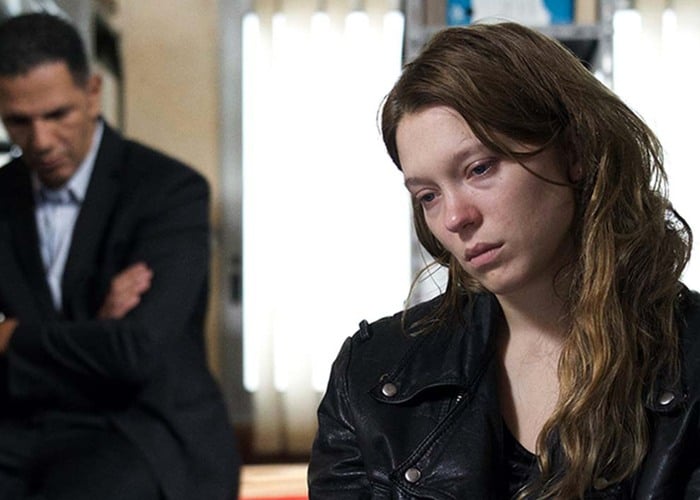
Winner: Oh Mercy!
Léa Seydoux and Sara Forestier play a couple of women in a bleak Northern French neighborhood brimming with crime. After an old woman is murdered, their proximity alone lands them suspect interrogations. I’ll leave it for you to find out whether they’re guilty or not, but I’ll let you know ahead of time that their attempts to defend themselves are piss poor (though Seydoux and Forestier perform the parts wonderfully). The longer they defend themselves, the worse they get at it. They’re the kind of fictional characters that don’t close doors, i.e. you just want to scream at them to do and say the obvious thing(s) the whole time.
Honorable Mention: A Hidden Life
Perhaps the worst argument is no argument at all. Pacifists are often critiqued for their idealism, and while the critique might have some validity, pacifism is a lifestyle, not merely a belief. It comes as no surprise that the gentle conscientious objector Franz Jägerstätter (August Diehl) keeps his mouth shut most of the time, as there are very few forms of retaliation that suit his approach. But you’d think a couple of daughters and a wife might have influenced him to reconsider practicing his debate skills, which in no way would have violated his nonviolent lifestyle.
Trigger Warning Award
There’s often a film or two at a fest that are so extreme that you leave thinking, “Shit, I hope everyone in the audience is okay.” Sometimes it’s a product of a violent rape scene and the concern is directed towards past victims that didn’t see it coming. Pretty much every other time it’s a product of strobe lights.
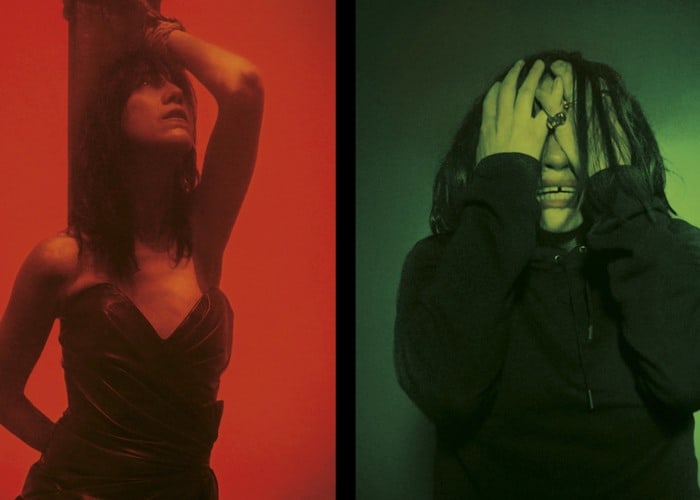
Winner: Lux Æterna
The last 10-15 minutes of Gasper Noé’s experimental medium-length film is made up of red, blue, and green strobe lights beating the hell out your eyes. As if that’s not enough, the strobing is complimented by a shrill, piercing ringing and a deafening throbbing sound. I feel almost certain that at least 1 person in that 1600-person audience was epileptic, and I simply don’t understand why the film wasn’t preceded by a trigger warning to avoid otherwise unavoidable seizures and concomitant emergency hospital trips. That said, it’s a wild experience that all non-epileptic folks should watch in a very dark room with Advil on hand once it hits computer screens.
Best Criminal
For reasons unbeknownst to me, it was a big year for procedural crime dramas, which got slightly different treatment across the board but were always grounded by a well-developed criminal, sometimes deserving of the moniker and other times an ethical victim of the law itself.
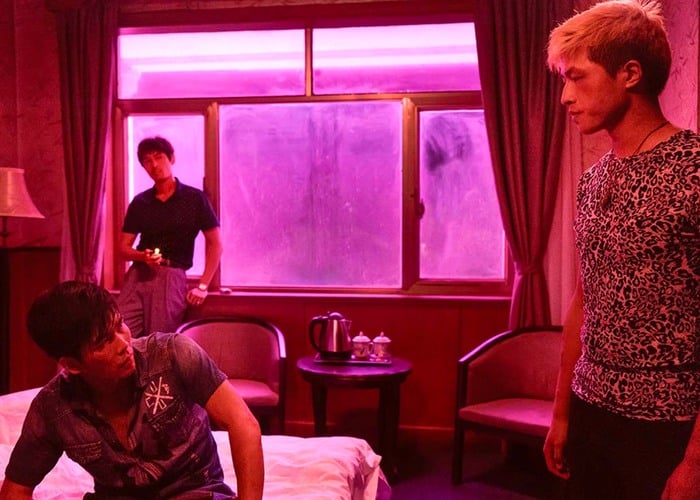
Winner: Zenong Zu (Ge Hu) in The Wild Goose Lake
Zenong Zu is on the run. His crimes? Eh, that’s not really important. What’s important is that it feels like every goddamn police officer in the entire Republic of China happens to be chasing him, and the numbers aren’t helping. How he manages to get away from his captors over and over again is quite a mystery, but I can assure you Zu would be the first pick as leader for any heist squad, escape plan, or lay-low scheme this side of the Yangtze.
Most Lovable Family Unit in a Bind
Another one of Cannes’ unforeseen trends, there are no less than 10 situations on screen that fit this mold. In Bacurau, it takes the form of a family forced to fight alongside their village. In Little Joe, a single mother and her son’s discord bubbles up as the result of an engineered plant. In Nina Wu, it manifests as a conflict between Wu’s mentally deteriorating father and a past employee. In A Hidden Life, Nazism threatens to execute the family’s father. Save for a couple of comedic examples, most are rife with tragedy.

Winner: Ki-taek’s crew in Parasite
The utter sagacity and resourcefulness wielded by Ki-Taek, his wife, his son, and his daughter to escape poverty is hilarious, impressive, and effective. Their bind is socio-economically inevitable, but their collective mind is unbeatable. Not to mention, they’re just a tight bunch. It’s nice to see a mature family on screen acting more like friends than bickering relatives.
Honorable Mention: The Turners in Sorry We Missed You
The earnest generosity of Abbey the mother, desperate work ethic of Ricky the father, and cute innocence and intelligence of little Lisa Jane make up for the lack of adoration for punk bully brother Seb. But by the end, you’ll appreciate everyone’s position, ache for their arduous lives, and hopelessly yearn for their unified peace in the face of capitalist chaos.
OPS d’Or
Our grand prize is a mixture of the Palme d’Or and the most stellar cinematography, seeing as perfect shots are our namesake. There were three perfect movies at Cannes this year. One of them was in the Critics’ Week offshoot festival, and thus, not eligible for the Palme d’Or, which went to Parasite. While the OPS d’Or could genuinely go to any three of these magnificently shot films, it feels apt to give it to the one with the deepest collection of perfect shots.
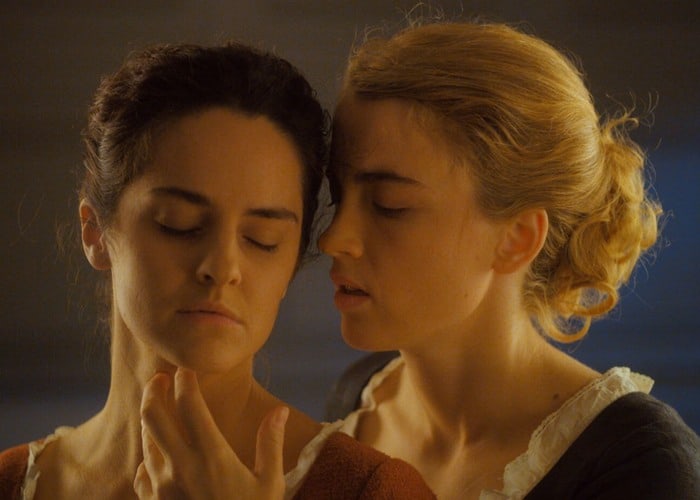
Winner: Portrait of a Lady on Fire
I couldn’t be more glowing in my review of Céline Sciamma’s masterpiece, so go there for in-depth praise. In short, everything about this film is exceptionally beautiful. The colors, the sounds, the textures, the landscapes, the music, the cinematography. It’s striking, arresting, and singular, and you absolutely cannot miss it.
Honorable Mentions: Parasite and The Lighthouse
Similarly, you’ll understand much more as to why Parasite and The Lighthouse deserve such rapturous praise by reading the reviews I wrote for them, seeing as I virtually just wax poetic about how tremendous they are. But these aren’t flippant choices based solely on favorites. The cinematography and technical execution in both films are astonishing and unforgettable, Parasite with its sharp, modern architectural playground and The Lighthouse with its salty, smutty, crusty hellscape. In total, all three films are wholly unique and unlike anything else you’ll see in theatres this year.
Related Topics: Cannes, Film Festivals, Once Upon a Time in Hollywood, Palme d'Or, Parasite, Portrait of a Lady on Fire, The Lighthouse


